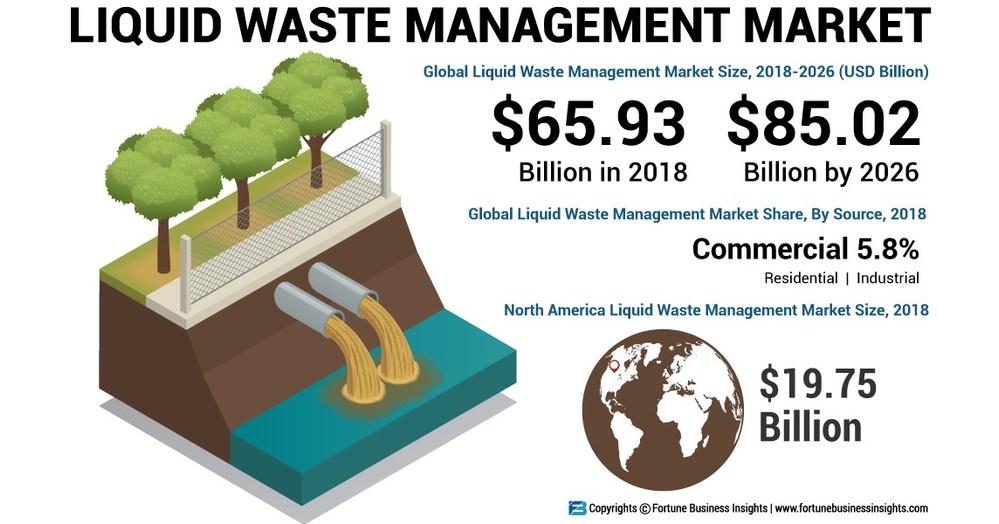The smart Trick of Reclaim Waste That Nobody is Discussing
Table of ContentsSome Known Details About Reclaim Waste See This Report on Reclaim WasteThe Definitive Guide to Reclaim WasteExcitement About Reclaim WasteThe Single Strategy To Use For Reclaim Waste
Discover the types, occurrences, and kinds of liquid waste. Residential sewage waste describes the waste and products from a domestic septic tank. This kind of waste is created by human beings in homes, schools, and various other buildings. This only consists of septic storage tanks that have a drainpipe field. The correct monitoring and disposal of domestic sewer waste require fluid waste to be moved to a sewage therapy plant where the proper techniques and equipment are related to purify and deal with waste.
Industrial waste frequently consists of potential dangers, such as flammable products or a mixture of fluid and strong waste products, and requires an extra advanced and in-depth disposal procedure. The disposal of commercial waste usually entails the filtration of waste before transport to make certain safe and appropriate disposal. Hazardous waste is developed from by-products and drainage of commercial processes and manufacturing.
This sort of waste can not use the same sewage administration transportation or processes as septic or industrial liquids. The hazardous waste administration process requires the evaluation and testing of liquid waste prior to it goes through the disposal process (liquid waste disposal melbourne). Runoff waste is the fluid waste that originates from overflow and excess stormwater in extremely booming locations or cities
Drainage waste can trigger contamination and flooding if not handled correctly. Discover more about drain cleaning and waste management. Ensuring appropriate waste administration can protect against catastrophes and decrease environmental damage. Both individuals in residential settings and experts in industrial or manufacturing sectors can profit from comprehending the processes and regulations of fluid waste monitoring.
A Biased View of Reclaim Waste
Get in touch with PROS Providers today to learn concerning our waste management and disposal solutions and the proper methods to care for the fluid waste you create.
(http://peterjackson.mee.nu/do_you_ever_have_a_dream#c2256)This supposed 'wastewater' is not just an important resource yet, after treatment, will certainly be released to our land, waterways or the ocean. Used water from commodes, showers, baths, cooking area sinks, laundries and commercial processes is known as wastewater.

water utilized to cool down equipment or clean plant and devices). Stormwater, a form of wastewater, is overflow that moves from agricultural and see this page city areas such as roofings, parks, gardens, roads, courses and gutters into stormwater drains pipes, after rainfall. Stormwater flows unattended directly to regional creeks or rivers, at some point reaching the sea.
The Best Guide To Reclaim Waste
In Queensland, a lot of wastewater is treated at sewer therapy plants. Wastewater is delivered from residential or industrial sites through a system of sewers and pump terminals, recognized as sewage reticulation, to a sewer treatment plant.
The Division of Natural Resources suggests city governments concerning handling, operating and preserving sewage systems and therapy plants. In unsewered areas, regional governments may require owners to mount individual or family sewage therapy systems to treat domestic wastewater from commodes, kitchen areas, washrooms and washings. The Department of Natural Resources authorises making use of family systems when they are verified to be effective.
Most stormwater obtains no treatment. In some brand-new communities, therapy of some stormwater to eliminate clutter, sand and gravel has started using gross pollutant catches. Wastewater treatment takes place in four phases: Removes solid matter. Larger solids, such as plastics and other objects mistakenly discharged to sewage systems, are eliminated when wastewater is passed through displays.
Makes use of tiny living organisms recognizes as micro-organisms to damage down and get rid of remaining dissolved wastes and fine fragments. Micro-organisms and wastes are incorporated in the sludge.
Reclaim Waste Things To Know Before You Get This
Nutrient elimination is not readily available at all sewer treatment plants because it needs costly specialist equipment. Clear liquid effluent produced after treatment might still have disease-causing micro-organisms - liquid waste removal.

This typically means wastewater has to be treated or pollutants removed before it can be released to rivers. Most wastewater flows right into the sewerage system. Under the Act, neighborhood federal governments provide approvals and licences for environmentally pertinent tasks (Periods) including wastewater releases that could have a neighborhood effect. The department administers approvals and permits to Ages entailing wastewater releases that could have a local or statewide impact.
The 15-Second Trick For Reclaim Waste
Or else, examples are taken for research laboratory evaluation. Typically several tests are required to develop the levels of each of the different toxins such as oils, heavy metals and pesticides in water. Surveillance provides accurate info concerning water top quality and can confirm that licence conditions are being satisfied. The details obtained via monitoring offers the basis for making water high quality choices.